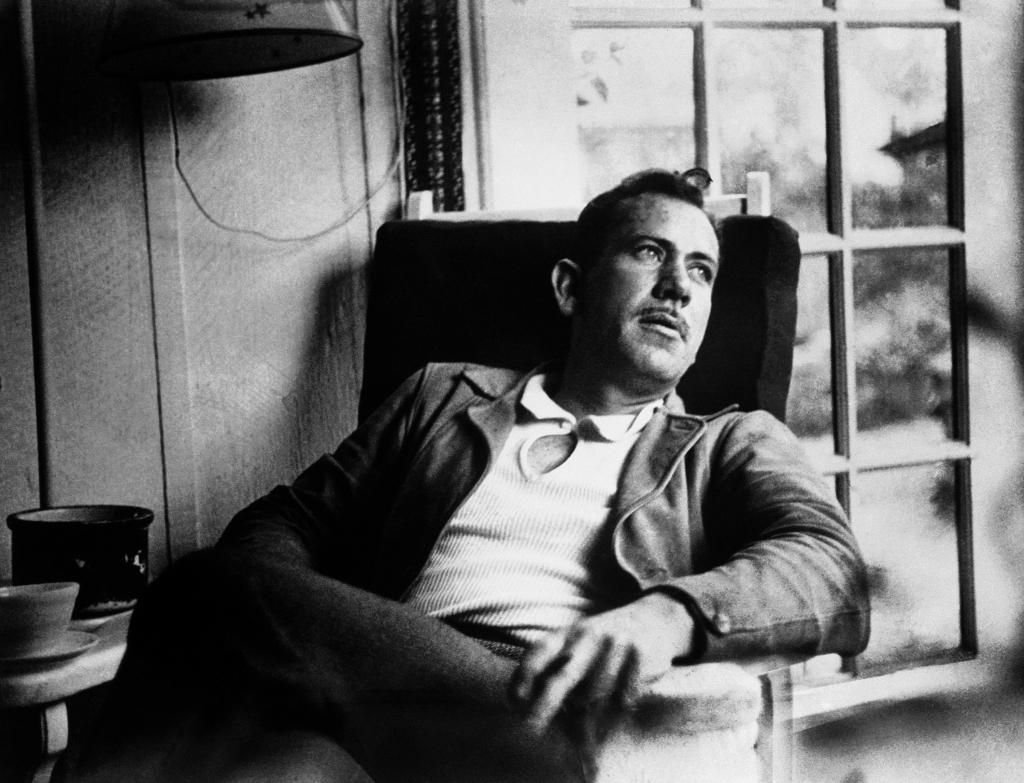EW YORK — In July 1944, Orson Welles wrapped up one of his wartime radio broadcasts with a brief, emotional reading of one of the country’s favorite authors, John Steinbeck.
The piece was titled “With Your Wings,” an inspirational story about a black pilot that Steinbeck wrote for Welles’ program, and it seemed to disappear almost as soon as it was aired. There are no records of “With Your Wings” appearing in book or magazine form. Even some Steinbeck experts, including scholar Susan Shillinglaw and antiquarian James Dourgarian, know little about it.
“It doesn’t ring a bell at all,” said Dourgarian, who specializes in selling first editions of Steinbeck’s work. “And that’s saying something if I haven’t heard of it. It’s also surprising because you would think that anything Steinbeck was involved with would be printed some place.”
But 70 years after Welles’ introduction in the midst of World War II, “With Your Wings” is getting a second release. Andrew F. Gulli, managing editor of the Birmingham, Michigan-based quarterly The Strand Magazine, came upon the transcript recently while looking through archives at the University of Texas at Austin. He features it in The Strand’s holiday issue, which comes out Friday.
Steinbeck, who died in 1968, wrote often about social injustice and on occasion featured black characters, notably Crooks in his classic novella “Of Mice and Men.” Gulli, whose magazine specializes in reissuing obscure works by famous writers, said in a recent email that “With Your Wings” was characteristic of the Nobel laureate’s worldview.
“Steinbeck was an idealist. He saw America as this wonderful land with so much to offer but on the flip side, he could see inequality, he could see greed and excess destroying the working classes,” Gulli wrote. “This story strikes me as an effort to show middle America that African-Americans were carrying on a huge burden in defending the United States and the allies during the war.”
An avid supporter of the war, Steinbeck worked overseas as a correspondent in the 1940s and, according to biographer Robert DeMott, wrote a favorable book about the Air Force called “Bombs Away!” Dourgarian noted that Steinbeck had favored “unusual” stories instead of describing the daily briefings from military officials.
“With Your Wings” at first reads like a standard narrative of a veteran’s return, a plot used by everyone from Homer to Ernest Hemingway. Second Lieutenant William Thatcher has completed his training and at a farewell ceremony receives silver wings, pinned to his chest. He climbs into his “clattering” Model-A Ford and sets out for an unidentified hometown. He appears to be greeted as a hero, or at least a celebrity, passing “crowded porches” and children “washed and dressed in their best and starchiest clothes, hairs bursting with ribbons.”
“He could hear the rustle as the neighbors moved silently near and formed a half circle behind him,” Steinbeck writes. “It was as though his own people were sitting in judgment on him.”
Thatcher’s sense of obligation is made more clear and powerful when Steinbeck reveals that he is black, at a time the military was segregated.
“He took off his cap with the gold eagle on it and held it in his hand. He saw his tall father lick his lips. And then his father said softly, ‘Son, every black man in the world is going to fly with your wings,'” Steinbeck writes.
“His heart was pounding. He could hear a little quiet murmur of voices in front of the house. He knew they were going to sing in a moment. And he knew now what he was to them.”
Send questions/comments to the editors.



Success. Please wait for the page to reload. If the page does not reload within 5 seconds, please refresh the page.
Enter your email and password to access comments.
Hi, to comment on stories you must . This profile is in addition to your subscription and website login.
Already have a commenting profile? .
Invalid username/password.
Please check your email to confirm and complete your registration.
Only subscribers are eligible to post comments. Please subscribe or login first for digital access. Here’s why.
Use the form below to reset your password. When you've submitted your account email, we will send an email with a reset code.